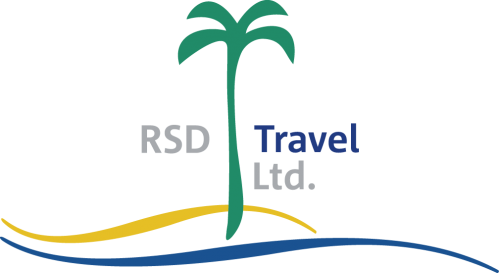Information on South Africa, Botswana, Zimbabwe
Comparison of temperatures
| Jan | Feb | Mar | Apr | May | Jun | Jul | Aug | Sep | Oct | Nov | Dec |
| Pretoria | 23 | 24 | 24 | 21 | 18 | 14 | 12 | 14 | 15 | 19 | 20 | 22 |
| London | 6 | 8 | 9 | 11 | 15 | 20 | 21 | 20 | 19 | 15 | 10 | 7 |
General note:
Below is an information overview. The conditions of entry, as well as the political and health situation, can change anywhere in the world at any time. We therefore recommend checking before your trip. Please check the website of the Foreign Office (www.gov.uk) before your departure.
Geography:
South Africa: The Republic of South Africa is at the southern tip of Africa.
Zimbabwe & Botswana: Countries in the southern part of Africa, without access to the sea.
Form of government:
South Africa: Parliamentary democracy with a strong Executive President and federal elements
Zimbabwe: Republic with a presidential constitution
Botswana: Republic with parliamentary-bound executive power
Capital:
South Africa: Pretoria
Zimbabwe: Harare
Botswana: Gaborone
Religion:
South Africa & Botswana: predominantly Christians, as well as traditional African faiths
Zimbabwe: predominantly Christians
Language:
South Africa: All 11 national languages are official languages, incl. IsiZulu, Afrikaans and English.
Zimbabwe: The official language of the Republic of Zimbabwe is English, along with 15 other equally recognised official languages.
Botswana: The official languages are English and Setswana.
Climate:
South Africa: The climate is dry to subtropically-humid.
Zimbabwe: Mostly subtropical climate.
Botswana: Predominantly hot and dry desert climate.
Electricity:
South Africa & Botswana: 230 V alternating current, 50 Hz. An adapter is required.
Zimbabwe: 220 V alternating current, 50 Hertz. An adapter is required. There may occasionally be power outages.
Local time:
The time difference of all three countries to the UK in winter is +2 hour. As there is no change to daylight saving time, the time difference to the UK in summer is +1.
Making telephone calls:
To make phone calls to the UK, pre-dial 0044 (+44). The 0 before the area code is always omitted. For calls from the UK to Africa, the following country codes apply:
South Africa: Country code 0027 (+27)
Zimbabwe: Country code 00263 (+263)
Botswana: Country code 00267 (+267)
Country and people:
South Africa: Major cities are often characterised by strong contrasts. While better residential areas are often spaciously laid out, the ‘Townships‘ – which are still home to the majority of the nonwhite population – largely feature basic housing or slum-like huts. But not all townships are necessarily slums – there are also townships in middle-class residential areas.
Zimbabwe: Here, you can experience a more authentic, individual safari than anywhere else in Africa. The majority of Zimbabwe’s population belong to the Shona – approximately 82%. Overall, over 70% of Zimbabweans live in rural areas. Zimbabwe also has a lot to offer culturally. In the walls, up to 10 meters high, constructed entirely without mortar, massive birds carved in stone were found. The „Zimbabwe Bird“ now adorns the national flag.
Botswana: Botswana is one of the least densely populated countries on earth. A large part of the country comprises the semi-desert Kalahari in the southwest. Hundreds of animal species live in the approximately 15,000 square kilometre Okavango Basin in the north of Botswana. During the rainy season from November to March, lush vegetation unfolds in both landscapes. In the northwest of the country, there is a highly developed art of basket weaving, for which leaves of the Mokola palm (Hyphane petersiana) are used.
Entry requirements for British citizens:
South Africa: Your passport should be valid for at least 30 days beyond your intended date of exit from South Africa and have 2 blank pages. You do not need a visa to visit South Africa for tourism or business for up to 90 days.
Botswana: To enter Botswana, your passport must have an ‘expiry date’ at least 6 months after the date you arrive and at least 3 blank pages. You can visit Botswana for up to 90 days without a visa.
Zimbabwe: To enter Zimbabwe, your passport must be valid for at least 6 months from the date of your arrival and have 3 blank pages, in case you need to enter Zimbabwe and exit through one of the neighbouring countries or if you need to leave at short notice. You must have a visa to visit Zimbabwe. Most visitors apply for a visa on arrival in Zimbabwe. Take enough US dollars with you in small notes to pay for your visa – see information on visa fees from the Zimbabwean Embassy (https://www.zimlondon.gov.zw/?page_id=296). It is no longer possible to get a visa from the Zimbabwean Embassy in London. You can also apply for an e-visa before you travel (https://www.evisa.gov.zw/home). Zimbabwe usually grants 30-day visas. Check the number of days on your visa covers your intended period of stay.
You will be denied entry if you do not have a valid travel document or try to use a passport that has been reported lost or stolen. Make sure you get your passport stamped. This will record your date and port of entry. Unstamped passports will raise suspicions of illegal entry. Check the expiry date of your visa or entry stamp and ensure you do not overstay.
Citizens of other countries are requested to contact the British High Commission in London to find out the entry requirements applicable to them. Entry requirements for British citizens can change at short notice. Legally binding information and/or more extensive information on entry requirements is only available from the Embassy or one of the Consulates of your destination country. Whilst we endeavour to provide guidance where necessary, we can not be responsible for any problems encountered (whether at any point of entry or elsewhere) in the event that passport and visa requirements are not satisfied.
Tour guides:
Your expert tour guides will be able to provide you with detailed information about the country, people, history, culture etc., and offer advice and assistance for organising your trip. They can also help with room allocation and look forward to welcoming you with initial information. Here you will find out all you need to know and useful information about the trip. We have put together a varied programme including numerous highlights, enabling you to experience the culture and diversity of landscape that South Africa, Botswana and Zimbabwe has to offer, and learn all about the country and its people.
Additional packages:
Although your trip already includes a comprehensive package, you also have the option of choosing added extras. We recommend booking the following packages:
Explorer package: The package includes the boat trip on the Chobe River, the early morning game drive with a jeep in Chobe National Park, and the boat trip on the Zambezi: only £429* per person.
Half board: The package includes comfortable half board, i.e. 11× dinner as buffet or 3-course meal: only £599* per person.
* Package prices may vary when booking on site.
Currency:
South Africa: The unit of currency is the South African Rand (ZAR). 1 ZAR = 100 Cents. Rate (May 2024): 1 GBP = 23.13 ZAR; 1 ZAR = 0.04 GBP.
Zimbabwe: The unit of currency is the Zimbabwean Dollar (ZWD). 1 ZWD = 100 Cents. Rate (May 2024): 1 GBP = 459.85 ZWD; 1 ZWD = 0.0022 GBP.
Botswana: The unit of currency is the Botswanan Pula (BWP). 1 BWP = 100 Thebe. Rate (May 2024): 1 GBP = 16.99 BWP; 1 BWP = 0.058 GBP.
Banks/Credit cards:
Enquire with your bank in advance about any fees incurred for card payments abroad.
South Africa: Cash (GBP or USD) can be exchanged anywhere in the metropolises. When exchanging money, the passport must be presented without fail. Further information is provided by the South African Reserve Bank.
Zimbabwe: The use of foreign credit cards and the withdrawal of cash from ATMs are currently not guaranteed nationwide. Credit cards are very rarely accepted. Travellers should therefore start their journey with sufficient cash. It is advisable to deposit larger sums of money in the hotel safe to minimise the risk of theft. Important: Your debit card must be activated for use in Zimbabwe by your home bank.
Botswana: In the cities of Botswana, there are ample cash machines where one can withdraw money in the local currency, possibly using a credit card (which is accepted more frequently than a debit card). With a debit card, it is possible to withdraw between 2,000 and 8,000 Botswana Pula per day, depending on the cash machine. Both your debit card and the cash machine must display the Maestro or Cirrus sign. Towards the end of the month, cash shortages at machines are to be expected. Therefore, it is advisable to bring some cash in GBP or USD.
Bed Tax/City Tax/Short Stay Tax:
Botswana imposes a tourist tax of 30 US dollars per person. After a trip to neighbouring countries, the fee is waived upon re-entry within 30 days.
Customs regulations:
South Africa: Used personal items can be imported duty-free. The import of foreign currency is unlimited, but must be declared if it is equivalent to 10,000 USD or more. Similarly, the import of the local currency up to an amount of 25,000 ZAR is permitted and must be declared if the amount is higher. The export of Rand is limited to 5,000 ZAR, and foreign currencies to the amount declared upon entry. A maximum of 200 cigarettes, 50 cigars and 250 g of tobacco, 1 l of spirits and 2 l of wine can be brought into South Africa. Travellers arriving in South Africa are advised to declare their electronic devices, including cameras and laptops, even if they intend to take these items with them when they leave South Africa. (https://www.sars.gov.za/customs-and-excise/travellers/arrival-in-sa/)
Zimbabwe: The duty-free allowance for the import of goods and commodities upon entry has been reduced to 2,000 USD. According to the Zimbabwean customs, the maximum limit of cash carried is 2,000 USD. Up to 5 litres of wine with up to 2 litres of spirits can be imported in terms of alcoholic beverages. (https://www.zimra.co.zw/customs/customs-rebates/traveler-s-rebate)
Botswana: Both domestic and foreign currencies may be imported without restriction, but must be declared. The export of domestic currency is limited to 50 BWP, and foreign currency to the amount declared upon entry. Goods under 3,000 UA, a maximum of 200 cigarettes or 250 grams of tobacco or cigars, can be imported duty-free. 2 litres of wine or spirits (max. 1,000 millilitres) can also be imported. (https://www.botswanatourism.co.bw/travel-info/importation-goods) Further customs information on the import of goods can be obtained from the embassy of your destination country. Only there can you be given legally binding information.
Important: If you are travelling to Great Britain from outside the UK, your personal allowances mean you can bring in a certain amount of goods without paying tax or duty. If you go over your allowances you must declare all your goods and pay tax and duty on all the goods in that category. Please inform yourself about the current customs regulations: https://www.gov.uk/bringing-goods-into-uk-personal-use/arriving-in-Great-Britain.
Country-specific safety and security:
South Africa: The country records a high crime rate, especially in major cities and their outskirts. This includes acts of violence such as robberies, rapes, and murders. Travellers too fall victim to theft, short-term kidnappings, burglaries, and similar offences. Handbags are often snatched on the streets, particularly in city centres. Thefts also occur in hotel restaurants and rooms. There are frequent instances of manipulation or attempted fraud at ATMs by individuals pretending to assist with cash withdrawals. Travellers or travel groups are stopped and robbed on motorways or access roads, for instance, by being boxed in or sporadically stopped by vehicles falsely claiming to be the police. The routes to and from the airports in Johannesburg and Pretoria are particularly affected by this.
Zimbabwe: The exceedingly difficult political, economic and social situation of the population has led to a rise in crime. Particularly in the city centres of Harare and Bulawayo, but also in the smaller towns, there has been a notable increase in pickpocketing and ‘smash and grab‘ robberies. At night, there is a heightened risk of attack, especially in the cities, at red traffic lights and unlit intersections.
Botswana: The crime rate was at a low level, however, it has significantly increased in the last 6 months. In Gaborone and other cities, pickpocketing and credit card theft occur. Burglaries and muggings on pedestrians and motorists, especially after dark, have increased – even involving the use of weapons – so extra caution is advised at these times.
By good preparation and sensible behaviour, the likelihood of becoming a victim of a crime can be significantly reduced. The following precautions are recommended:
- Always carry a mobile phone.
- Do not flaunt valuables; avoid carrying large, valuable handbags if possible.
- Prefer cashless payments and only take the cash needed for the day and no unnecessary valuables.
- When visiting publicly accessible parks and well-known attractions, one should avoid secluded hiking trails and deserted areas. To reduce the risk of muggings, trips should only be undertaken in groups.
Special criminal provisions:
South Africa: Possession, consumption, import/export and trade of drugs can lead, depending on the severity of the offence, to a fine or up to 25 years in prison. Prostitution is punishable by law. Crimes in the area of child prostitution are met with particularly severe prison sentences. Picking protected plants and catching animals of protected species is prohibited and can result in significant fines and prison sentences. This also applies to the unauthorised export of said plants and animals. Nude bathing is also prohibited.
Zimbabwe: The act of photographing and filming military facilities and vehicles, soldiers, police officers, VIPs and security-relevant buildings (e.g. the presidential residence ‘Zimbabwe House‘ or ‘State House‘ on Borrowdale Road in Harare) is prohibited. This is interpreted quite broadly. Landscape photos, which incidentally included farms owned by government members, have led to arrests. The importation of drugs of any kind, as well as expired medicines and skin-lightening creams based on hydroquinone and mercury, is prohibited.
Botswana: It is forbidden to photograph military and security-relevant facilities, including for example, the Parliament building. Please respect photography prohibitions. The import and export of narcotics, addictive substances and related substances in any form and kind, as well as semi-precious stones such as amethysts, is forbidden. Furthermore, the import or export of endangered plants and animals is forbidden. This also applies to souvenirs containing minor components of the protected flora and fauna. It is important to note that possession of prohibited goods is illegal and can lead to confiscation of these goods and criminal prosecution of the person importing or exporting these goods.
Medical information:
At least 8 weeks before your trip, check the latest country-specific health advice from the National Travel Health Network and Centre (NaTHNaC) on the TravelHealthPro website (https://travelhealthpro.org.uk/countries). Each country-specific page has information on vaccine recommendations, any current health risks or outbreaks, and factsheets with information on staying healthy abroad.
Travellers should be up to date with routine vaccination courses and boosters as recommended in the UK. These vaccinations include for example measles-mumps-rubella (MMR) vaccine and diphtheria-tetanus-polio vaccine.
Diarrhoeal diseases: By adhering to the following hygiene rules, most diarrhoeal diseases can be avoided: Only drink water of a safe origin, e.g. bottled water, never tap water. When on the move, also use drinking water for washing dishes and brushing teeth. For food, the rule is: cook, peel or disinfect it yourself. Be sure to keep flies away from your food. Wash your hands as often as possible with soap, but always after using the toilet and always before preparing food and before eating.
Malaria: Malaria is transmitted by dusk and night-active Anopheles mosquitoes. If untreated, particularly the dangerous Malaria tropica often proves fatal in non-immune Europeans. The disease can break out weeks to months after staying in a risk area. If you experience fever during or even months after such a trip, you should see a doctor as soon as possible and inform them about your stay in a malaria area. The choice of medication and their personal adjustment should definitely be discussed with a tropical medicine/travel medicine specialist before taking them. It is recommended to bring a sufficient supply, but all medications are also available locally in good quality. Due to the mosquito-related infection risks, all travellers in the affected regions are advised to:
- Wear body-covering light clothing (long trousers, long shirts)
- Repeatedly apply insect repellent to all exposed body parts
- Even the clothing should be treated with insect repellent
- Possibly sleep under a mosquito net.
Schistosomiasis (Bilharzia): In nearly all freshwater bodies in Botswana, Bilharzia is endemic (e.g. Limpopo and Molopo River, along the Okavango and the Chobe River). Therefore, bathing, diving and any other water sports in lakes and rivers (including the Zambezi) should be strictly avoided.
Sleeping sickness (African Trypanosomiasis): In the north of Zimbabwe – especially in the Kariba Basin – there can be sporadic infections (including among safari tourists) with the pathogen of sleeping sickness, which can be transmitted by large, day-active tsetse flies with a painful sting, even through thinner fabric. Avoid fly bites by appropriate behaviour (including caution when travelling in open vehicles) and suitable sturdy, long clothing, sturdy footwear is also particularly recommended here. Further information and contact addresses can be found on the website of the Foreign Office (https://www.gov.uk/foreign-travel-advice).
Medical care:
South Africa: The medical care is generally good. The private hospitals in the major cities are of European standard, the state hospitals lag behind, but they also offer a goal-oriented service in emergencies. The medical care in the rural areas is not as good as in the major cities.
Zimbabwe: Medical care in the countryside and in the capital is not comparable with Western European structures. There are at least a few clinics and hospitals (private sector) in the capital with very decent conditions. Very seriously ill patients should be flown out to South Africa/UK. Many pharmacies have a satisfactory supply of medicines.
Botswana: The medical care in Botswana is fundamentally better than in many other countries, however, it is not comparable to European standards. Always consider the size of the country and its sparse population. Therefore, the journeys from an accident site to a clinic are always lengthy. Particularly in the tourist centres of Kasane and Maun, medical care in case of illness is only very limitedly available. Please inform yourself beforehand about treatment options on site if you are travelling with pre-existing conditions. Important notice: For medical services and hospital treatment, an upfront payment of a potentially significant amount is generally required. It is strongly advised to take out international health insurance with the option of medical repatriation to the UK!
Customers must ensure that they are in good physical and mental health in line with the trip in question. Customers must enquire about the physical mobility and psychological autonomy required for this trip.
All information is subject to change / Last updated: May 2024
back Information & tips
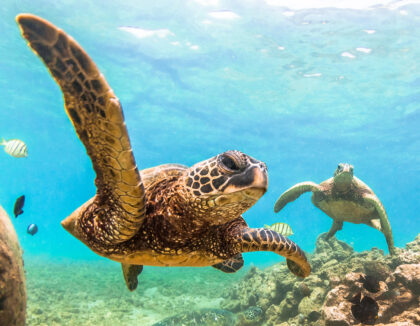 Travel highlights
Travel highlights
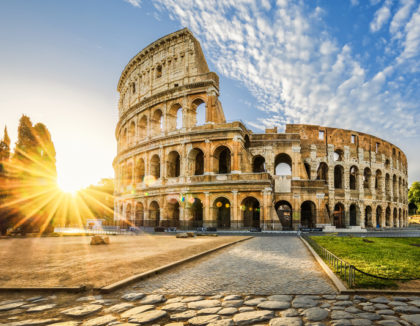 Europe
Europe
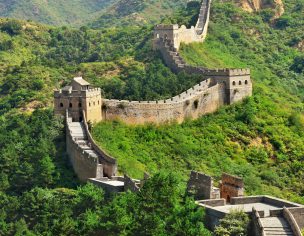 Asia
Asia
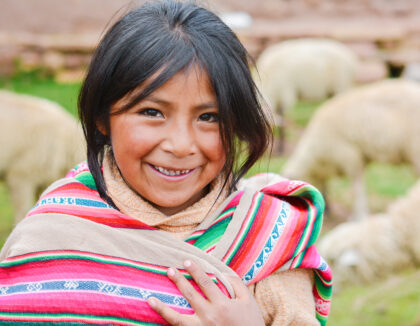 America
America
 Africa
Africa
